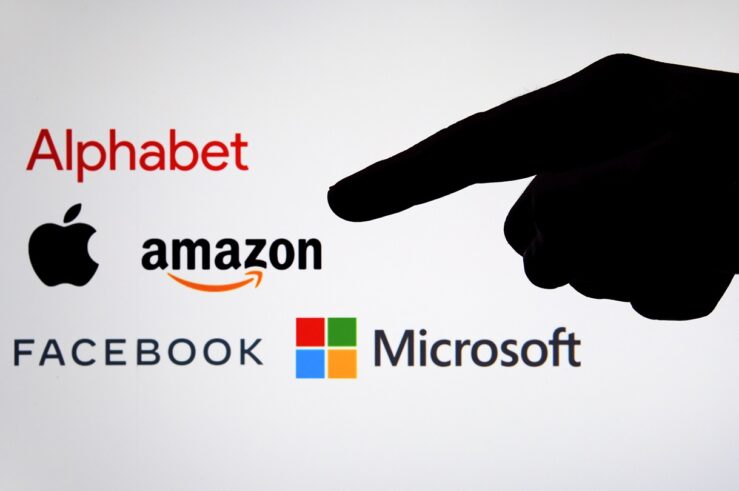
Under the Bayh-Dole Act, the federal government has the right to “march in” on patents on inventions created using taxpayer funds—to require the patentholder to license the federally funded patent to other applicants. The terms of the license must be “reasonable under the circumstances.” The act limits the exercise of march-in to specific circumstances related to accessibility of the invention, as well as national health and safety (35 U.S.C. 203).
The law does not list the pricing of a license as a grounds justifying march-in.
In December 2023, the National Institute of Standards and Technology (NIST) released for public comment draft interagency guidance outlining when the government should exercise its march-in rights, which have never before been utilized. The draft NIST framework makes clear that high price is an appropriate basis for exercising march-in rights.
Recently, Kristian Stout excoriated the Federal Trade Commission’s (FTC) Feb. 6 comment to NIST that the “march-in” rights provision under the Bayh-Dole Act authorizes the government to impose price controls on patents developed through federally funded research. According to Kristian:
if NIST takes the FTC’s (unexpected, but ultimately unsurprising) contribution seriously, such an expansion could lead to overregulation that would ultimately hurt consumers and destroy the incentives that firms have to develop and commercialize lifesaving medicines.
Stout’s commentary was in harmony with comments conveyed in a recent letter to President Joe Biden by former secretaries of the U.S. Commerce Department, as well as former directors of both NIST and the U.S. Patent and Trademark Office (USPTO) in opposition to the misuse of march-in. As Steve Brachmann explains:
Tracing back to the Clinton Administration, these former government officials note that every U.S. President, including Joseph Biden, previously concluded that the Bayh-Dole Act did not give the Executive Branch proper authority to order the relicensing of patent rights based on commercial pricing.
Also notable is a fulsome letter signed by 22 scholars, former judges, and former government officials who are experts in patent law, patent licensing, and innovation policy. The letter explains in detail why the federal government lacks the statutory authority to regulate patent pricing through march-in. The letter concludes that:
The Guidance Framework proposes the addition of “reasonable price” as an unprecedented criterion for exercising the march-in powers specified in § 203 of the Bayh-Dole Act. This is a legally unjustified and unauthorized arrogation of power by NIST. The Bay-Dole Act does not state in its plain text a congressional authorization for federal agencies to consider “reasonable price” as a criterion for imposing price controls on all Bayh-Dole patented products or services that are commercialized in the marketplace. In addition to lack of authorization in the plain text of § 203, the Guidance Framework’s inclusion of “reasonable price” as a march-in criterion contradicts the function of Bayh-Dole in promoting the commercialization of inventions by patent owners in the marketplace. The NIH has consistently and repeatedly confirmed this lack of statutory authorization in § 203 to impose price controls across bipartisan administrations over several decades in rejecting all march-in petitions seeking to impose price controls.
My Comment to NIST
My Feb. 2 comment submitted to NIST (posted on Feb. 7) concludes that:
[T]he proposed Framework would twist Bayh-Dole and weaken the U.S. intellectual property system is misguided and will harm market competition, consumer access to new technologies, and our strategic global interests in technology leadership. I strongly urge NIST to withdraw this proposed framework and uphold the Bayh-Dole Act as written. Thank you for the opportunity to comment on this critical issue.
Key excerpts from my comment to NIST (footnote references to hyperlinks omitted) are set forth below:
The Bayh-Dole Act was passed on a bipartisan basis in 1980 to respond to the rampant waste of federally-funded R&D dollars in national labs and large research universities. Congress correctly noted that taxpayer-funded research ended up sitting on the proverbial shelf because licensing was centralized in an opaque federal bureaucracy. Prior to the law’s passage, less than five percent of federally-funded inventions were ever licensed.
Bayh-Dole’s innovation was simple but revolutionary. The law decentralized licensing decisions to university technology transfer offices, which had every incentive to find private sector partners willing to commercialize their research discoveries. This unleashed a flood of commercial activity that created millions of high-paying jobs, thousands of new startups, and more than $1 trillion in economic output. Across critical sectors including the life sciences, agriculture, telecommunications, semiconductors, and more, Bayh-Dole inventions underpin transformative technologies that save lives, benefit consumers, and ensure the United States’ continued technological leadership.
Unfortunately, the proposed framework threatens to dismantle this progress by twisting the triggering provisions for march-in under Bayh-Dole Act to include price – contrary to congressional intent and without an express grant of that authority.
As the White House notes, this is the first time the federal government has asserted a right to forcibly relicense a Bayh-Dole patent solely on the basis of price. Price is not mentioned once in the legislation, and as the authors of the law noted, march-in was never intended to be a tool to lower the price of a Bayh-Dole invention. Over the past four decades, administrations from both parties have consistently rejected repeated requests to twist Bayh-Dole into a price control mechanism.
The negative repercussions of such a move cannot be overstated.
The new framework undermines the patent system, which underpins innovation in a wide variety of high-tech industries. As the USPTO reports, IP-intensive industries account for 41 percent of U.S. GDP and directly employ a third of the American workforce.
Empirical research consistently demonstrates that patents do not confer monopoly power to inventors, but rather encourage competitors to “design around” a patent — that is, to draw on its basic insight in a way that does not infringe on it. This phenomenon spurs further innovation, resulting in superior consumer welfare gains. Weakening patent protections will slow market competition, keeping prices artificially high and depriving patients and consumers of crucial new products and improvements.
Driving the proposed reinterpretation of Bayh-Dole is the desire for lower drug prices. Setting aside several additional cogent critiques of this position (including that most drugs on the market today are protected by several patents, many of which do not fall under Bayh-Dole ), note that the proposed framework applies to all technologies, not just to pharmaceuticals. Bayh-Dole inventions power U.S. leadership in sectors including agriculture, telecommunications, and semiconductors. If federal officials deemed the price of any product derived from federally funded research too high, the government could march in on it.
Not only would the proposed framework reduce market competition in precisely the industries the United States is relying on to maintain strategic dominance. It would also undermine several bipartisan initiatives to leverage government investment and public-private partnerships to promote national security and secure domestic supply chains for critical technologies.
Take, for example, the $52 billion CHIPS and Science Act, which emphasizes “nanotechnology, clean energy, quantum computing, and artificial intelligence.” The proposed framework could impose price controls on any start-up or firm that leverages federally-funded research in these sectors. This will inevitably chill private investment in these technologies.
With the United States in a generational competition with China, we cannot afford to weaken our most innovative technologists. A study from last year discovered that Chinese research institutions lead the world in 37 out of 44 critical technology sectors. Damaging the U.S. tech transfer ecosystem, which currently drives a “virtuous cycle” of investment and reinvestment into our top institutions, would be catastrophic for our national security and technological leadership.
In sum, the proposed Framework would twist Bayh-Dole and weaken the U.S. intellectual property system. It is misguided and will harm market competition, consumer access to new technologies, and our strategic global interests in technology leadership. I strongly urge NIST to withdraw this proposed Framework and uphold the Bayh-Dole Act as written.




